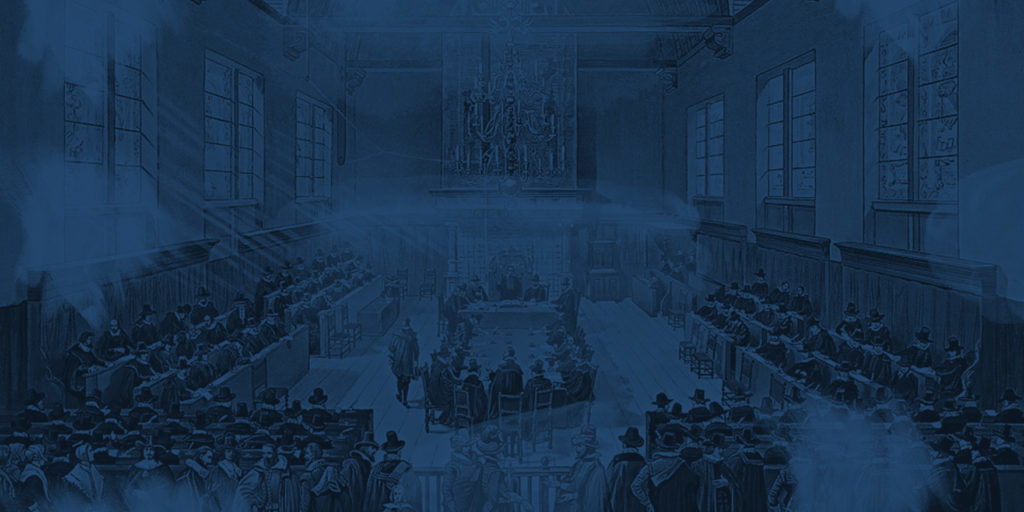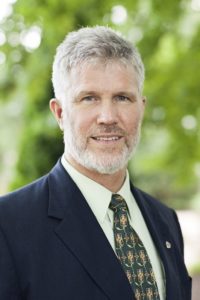
From Death to Life
The new issue of  Credo Magazine focuses on Dort at 400. The following is an excerpt from Jim Scott Orrick’s article, “From Death to Life: The Synod of Dort of Depravity, Effectual Calling, and Regeneration.” Orrick’s professional and academic careers have run in two confluent streams. For about 40 years he has been preaching and teaching the Bible, and he has served as pastor of churches in West Virginia, Illinois, and Missouri. At the same time his lifelong love for literature and language arts has enriched his appreciation for God’s Word and also enhanced his ability to interpret and communicate the Truth. He has taught in several colleges and universities. Orrick has contributed chapter to books on literature, philosophy, and church history. He is author of several books including A Year with George Herbert: A Guide to Fifty-Two of His Best-Loved Poems and Mere Calvinism.
Credo Magazine focuses on Dort at 400. The following is an excerpt from Jim Scott Orrick’s article, “From Death to Life: The Synod of Dort of Depravity, Effectual Calling, and Regeneration.” Orrick’s professional and academic careers have run in two confluent streams. For about 40 years he has been preaching and teaching the Bible, and he has served as pastor of churches in West Virginia, Illinois, and Missouri. At the same time his lifelong love for literature and language arts has enriched his appreciation for God’s Word and also enhanced his ability to interpret and communicate the Truth. He has taught in several colleges and universities. Orrick has contributed chapter to books on literature, philosophy, and church history. He is author of several books including A Year with George Herbert: A Guide to Fifty-Two of His Best-Loved Poems and Mere Calvinism.
He is dead. This is the worst thing you can say about a person’s physical health. Dead is worse than gravely ill. Dead means that inevitable deterioration has begun. Dead means that a separation with the living has taken place. Dead means that the person will never get better unless God intervenes and resurrects him from deadness. Dead is the word that the Holy Spirit uses to describe the spiritual condition of those who have never been regenerated.
When God first created humans, he warned them that if they disobeyed him, they would die. Forbidding them to eat of the tree of the knowledge of good and evil, God said, “For in the day that you eat of it you shall surely die” (Gen. 2:17). Did they die that day? After Adam and Eve disobeyed, they lived physically for many years, but on the very day that they disobeyed God they began to suffer natural spiritual consequences that are worse than physical death. Note that the Lord did not say, “I will kill you,” but he said, “You shall surely die.”
The Effects of Spiritual Death
Spiritual death is the natural consequence of disobeying God. When a person will not submit to God, and the person attempts to determine for himself what is good and evil, he is living in a state of spiritual deterioration, he is separated from the living God, and his only hope is if God intervenes and resurrects him. That is the state of a spiritually dead person.
Millions of spiritually dead persons can read the foregoing paragraph, and their reaction will be to yawn, stretch, and say, “Yeah, that is what you religious freaks are always yammering about. Do you know who won the game last night?” They are dead in trespasses and in sins (Eph. 2:1) and are slightly amused at our alarmist pronouncements because “the natural person does not accept the things of the Spirit of God, for they are folly to him, and he is not able to understand them because they are spiritually discerned” (1 Cor.2:14). I used to be among the dead, and so were you.
We were dead and too dead to do anything about it. The Lord Jesus was talking about us when he said, “No one can come to me unless the Father who sent me draws him” (John 6:44). Let the comprehensiveness of Jesus’ statement sink in. “No one . . . no one can come . . . no one can come unless.”
To state the obvious, what this means is that no one can come to Jesus (and one must come to Jesus if he or she is to be saved) unless God draws him. We cannot sidestep the force of this categorical statement by saying that God draws everyone, because, as recorded in the very next verse, Jesus goes on to assert that those whom the Father draws actually do come to Christ: “Everyone who has heard and learned from the Father comes to me” (John 6:45). Simply put, a person cannot come to Christ on his own; God must draw him; when God draws him, he will come. In our Lord’s statement in John 6:44 we have the basic components for the doctrines of human corruption (no one can come), conversion to God (come to me), and effectual calling and regeneration (the Father draws him). In our Lord’s statement in John 6:44 we have the basic components for the doctrines of human corruption (no one can come), conversion to God (come to me), and effectual calling and regeneration (the Father draws him). Click To Tweet
Man’s Corruption in Relation to God’s Redemption
When I lecture or preach on the doctrines of God’s sovereign grace, or the Five Points of Calvinism, I begin by teaching on total inability, or as it is usually called, total depravity. The doctrine of total depravity lays the foundation for the doctrines of grace. For example, it is far easier to understand and embrace the doctrine of unconditional election when we understand that election is God’s planning for the success of the gospel in a world of sin-loving, God-hating people, none of whom would believe had God not planned to give life to some.
The ultimate reason that we believe any doctrine is because it is revealed in the Bible, and not because it is logical, but when we begin to understand the doctrine of total depravity, we see that the doctrines of God’s sovereign grace that follow after total depravity are not only biblical, they are also logical. So I always start with explaining total depravity.
In the Canons of Dort, however, the issues of depravity (or corruption), conversion, and effectual calling are grouped together, and appear, not under the first heads of Doctrine, but under the third and fourth. Why? The Canons of Dort are an answer to the Five Articles of Remonstrance published by the Arminians in 1610, and Dort is answering the articles in the order they appeared in the Articles.
Read Jim Scott Orrick’s entire article in the new issue of Credo Magazine: Dort at 400.

